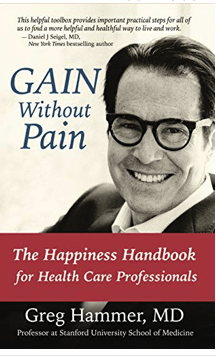Being Resilient in the Midst of the Pandemic Greg Hammer, MD
 Being Resilient in the Midst of the Pandemic Greg Hammer, MD We are amidst the third month of the coronavirus pandemic, heading for month #4. Our sheltering in place efforts have helped flatten the curve in the US and elsewhere, and most of us are fortunate not to have been overrun with the surge of new cases we anticipated only a few weeks ago. Although some shops and restaurants are being cautiously re-opened, a great deal of uncertainty remains and important questions will be answered only with the passage of time. When will we see the decline of the spread of this deadly virus even as our beaches, parks, and other public areas become accessible? When might we be back at work? Can we keep our families safe? When can we safely spend time with our family and friends without wearing masks or staying 6 feet apart? Will there be another wave of disease spread once this one is under control? What about the economy – will it recover swiftly in the coming months, or will we experience a lasting depression? There is so much suffering around us – even though we may have avoided infection, we cannot help but be adversely affected by the pandemic. Uncertainty brings stress. While acute stress may be adaptive in selected cases, such as running away from a predator or rescuing a child from the swimming pool, chronic stress is essentially always maladaptive. Stress causes elevations in the hormones adrenaline, cortisol, and glucagon, resulting in increases in heart rate, blood pressure, stress on our heart, and blood sugar. Decreases in estrogen, progesterone, and testosterone cause fatigue, mood swings, headaches, and weight gain. Our sleep is compromised. Our energy is sapped and we may be unable or unmotivated to exercise. O
Being Resilient in the Midst of the Pandemic Greg Hammer, MD We are amidst the third month of the coronavirus pandemic, heading for month #4. Our sheltering in place efforts have helped flatten the curve in the US and elsewhere, and most of us are fortunate not to have been overrun with the surge of new cases we anticipated only a few weeks ago. Although some shops and restaurants are being cautiously re-opened, a great deal of uncertainty remains and important questions will be answered only with the passage of time. When will we see the decline of the spread of this deadly virus even as our beaches, parks, and other public areas become accessible? When might we be back at work? Can we keep our families safe? When can we safely spend time with our family and friends without wearing masks or staying 6 feet apart? Will there be another wave of disease spread once this one is under control? What about the economy – will it recover swiftly in the coming months, or will we experience a lasting depression? There is so much suffering around us – even though we may have avoided infection, we cannot help but be adversely affected by the pandemic. Uncertainty brings stress. While acute stress may be adaptive in selected cases, such as running away from a predator or rescuing a child from the swimming pool, chronic stress is essentially always maladaptive. Stress causes elevations in the hormones adrenaline, cortisol, and glucagon, resulting in increases in heart rate, blood pressure, stress on our heart, and blood sugar. Decreases in estrogen, progesterone, and testosterone cause fatigue, mood swings, headaches, and weight gain. Our sleep is compromised. Our energy is sapped and we may be unable or unmotivated to exercise. O
Category: Brain Health, Videos



































